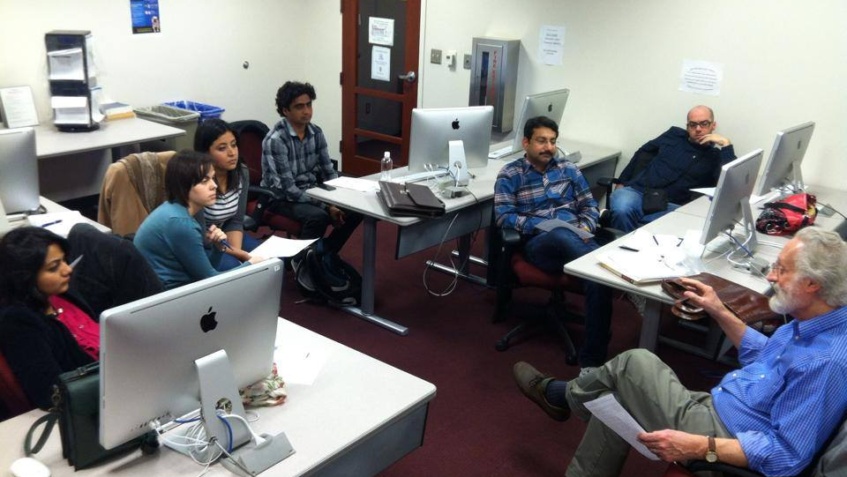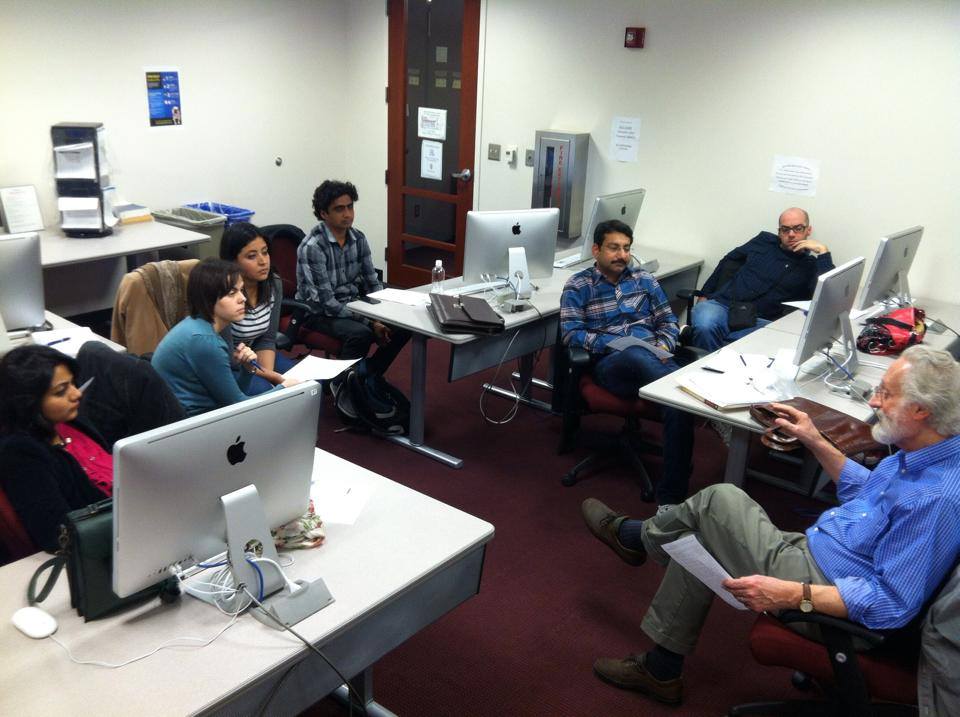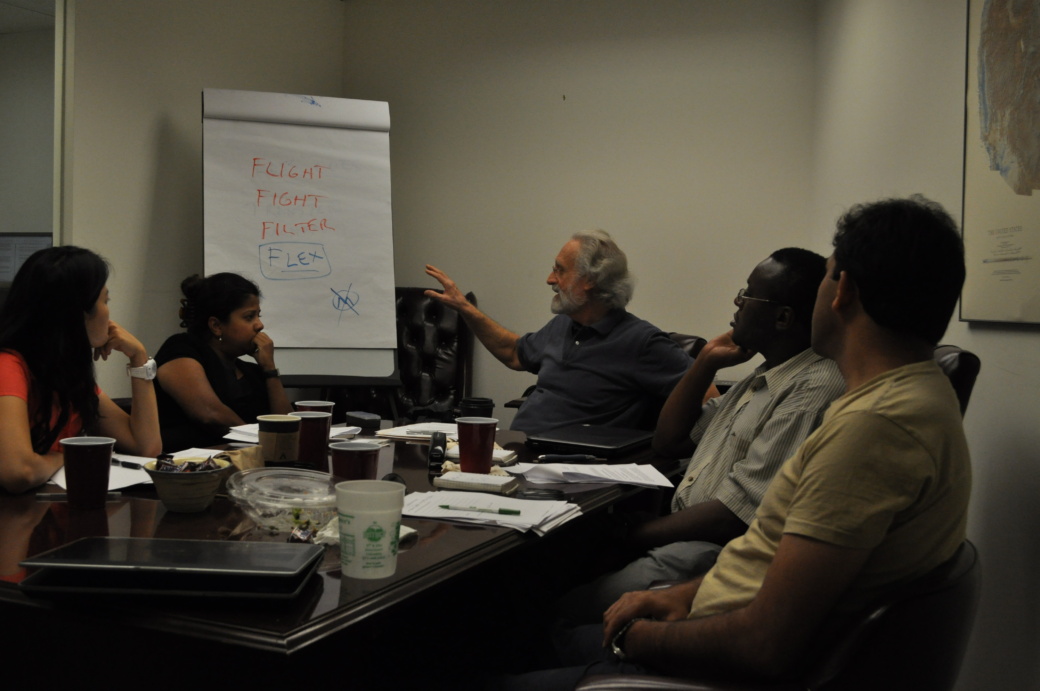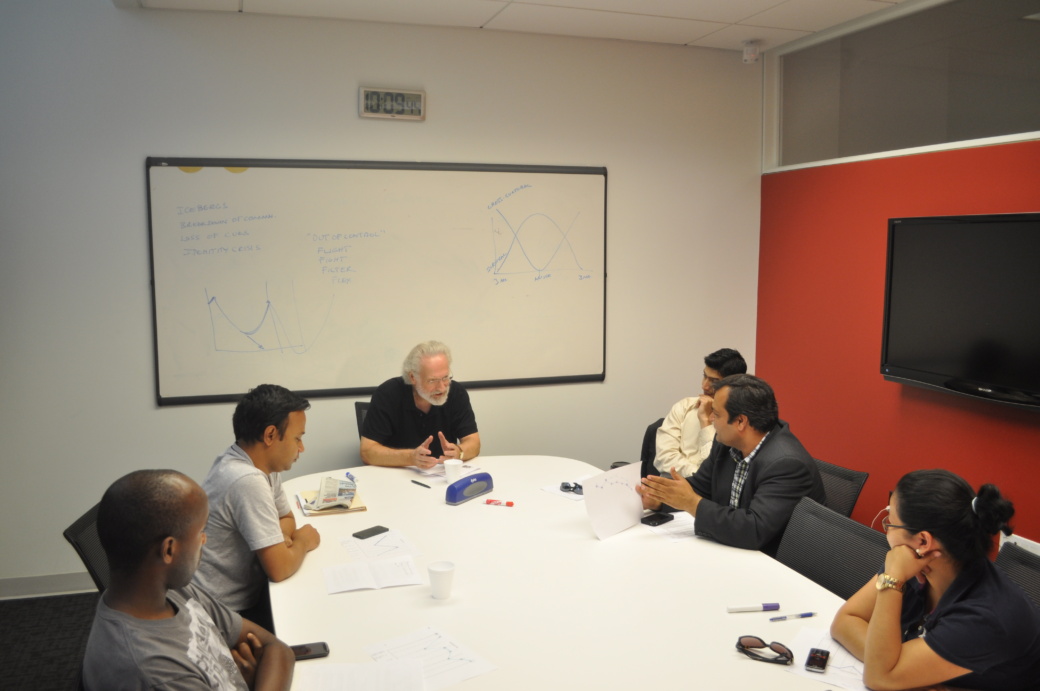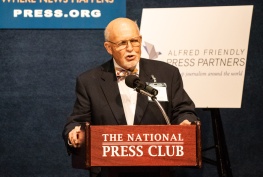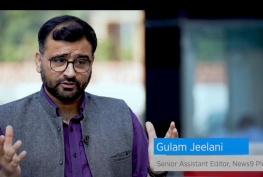Fellowship program trainer Gary Weaver, who helped journalists from more than 80 different countries adapt to living and working in the United States, died peacefully on March 11 after a valiant fight with cancer, his colleagues at American University said.
“Gary was the oil who calmed the troubled emotional waters for hundreds of Alfred Friendly Fellows,” Jonathan Friendly, chairman of the Alfred Friendly Foundation, said Tuesday.
Jonathan recalled that in 1985, after the first year of the program, then-director David Nalle and his assistant, Susan Talalay, realized they needed someone “‘to help the Fellows adjust to their strange and sometime scary new surroundings.”
Gary, who founded the Intercultural and International Communication Program at American University in Washington, D.C., was the obvious choice among the experts in cross-cultural communication.
In his seminars, Gary reassured new arrivals that the roller coaster ride of feelings they experienced were absolutely normal. In later sessions he taught them how to not just survive but to flourish in their American postings. And he prepared them for the shocks they would encounter when they went home to their newsrooms six months later.
“Gary had the ability to relate to all fellows and find common ground,” Susan Talalay said Tuesday. “His amazing sensitivity was for many fellows an anchor during their time here. He was an integral part of the program. He provided his wisdom and kindness to all the staff as well. And we all benefited from his sense of humor — we had fun.”
Her successor as Alfred Friendly’s director, Susan Albrecht, said Gary “had a way of conveying serious, useful information with humor and grace and excellent examples.”
She recalled his anecdote illustrating the amount of space between people that Americans are comfortable with — about an arm’s distance. A Mexican and an American were at a party and the Mexican kept getting closer to the American and the American stepping back. They looked like they were dancing until the Mexican got the American in a corner.
For 30 years he led sessions at the orientation again during the final seminar in Washington.
“The stress of reentry is often much greater than that of culture shock,” Gary wrote in the introduction to his agenda for the closing session. “It occurs earlier and lasts much longer than culture shock. Furthermore, those who adjust the best overseas often have the greatest difficulties readjusting to their home culture.”
Gary was also always willing to talk with Fellows or their mentors whenever they faced emotional or social difficulties during the six months. Shortly before his last session, for the Class of 2016 Fellows last August, Gary recalled some of the toughest and the most difficult interactions. There were Fellows who were hospitalized for mental and physical illnesses, Fellows who were involved in serious car accidents, pregnant Fellows and some who needed help through culture conflicts.
His charts and diagrams of the emotions common to everyone encountering a new culture gave a convincing visual confirmation that helped the Fellows understand and cope with the challenges of the program.
He gave Fellows a checklist of 17 values in the beginning of the program — such as honesty, honor your elders, freedom, achieve individual success — and asked them to mark the five most important American values and the five most important values in their countries. Six months later, he asked them to do it again, and talked about the changing perceptions. He asked fellows in their first week to list the difficulties they anticipated, and then went over the lists at the end, with sometimes surprising and profound contrasts with reality.
“What was consistent in the 15 years I worked with the program is that Fellows, at the beginning, did not feel that religion was important to
Americans,” Susan Albrecht said. “By the end of the program Fellows realized it was one of the most important American values.
Even hard-shelled journalists who originally thought they didn’t need the training soon came to understand why they did, Jonathan said.
Gary’s wife, Marte Stevenson, often accompanied him to AFPF events.
“Gary was always there for the Fellows,” Susan Talalay said. “They and the program itself owe him an unpayable debt of gratitude.”
There will be a memorial service at American University in the coming weeks. This post will be updated with details.

